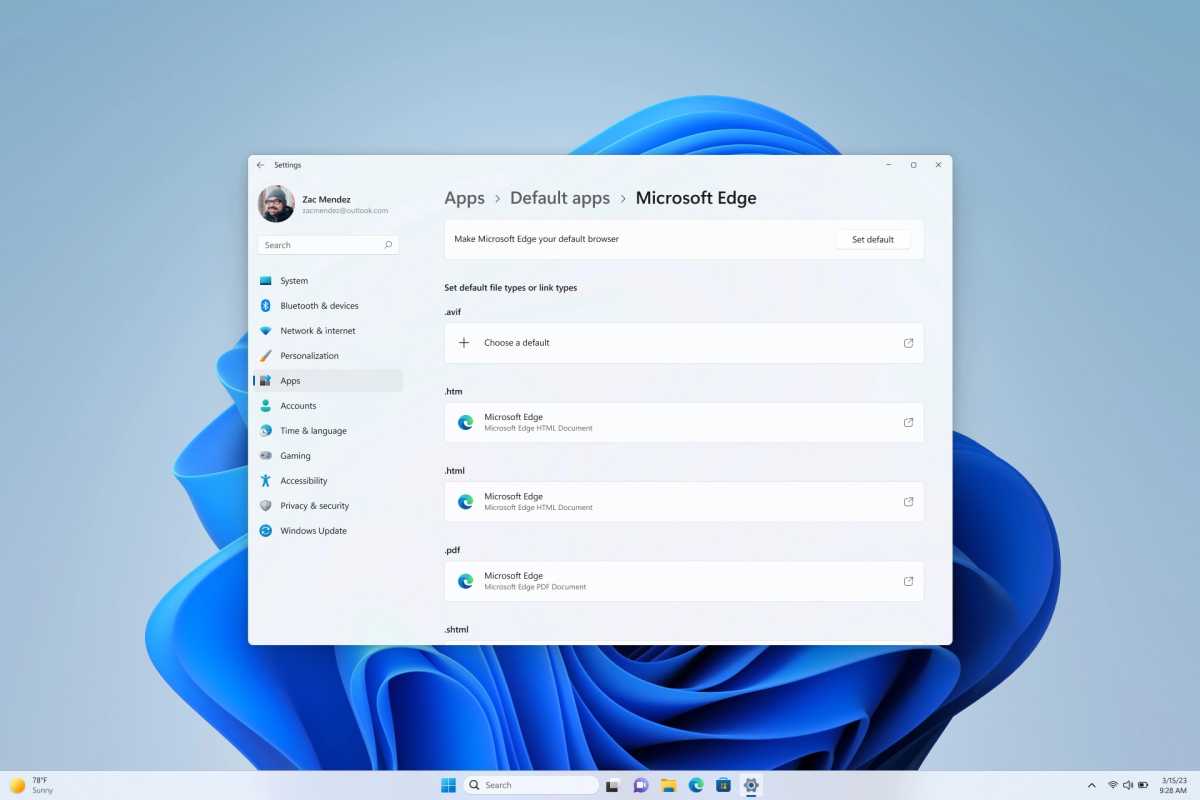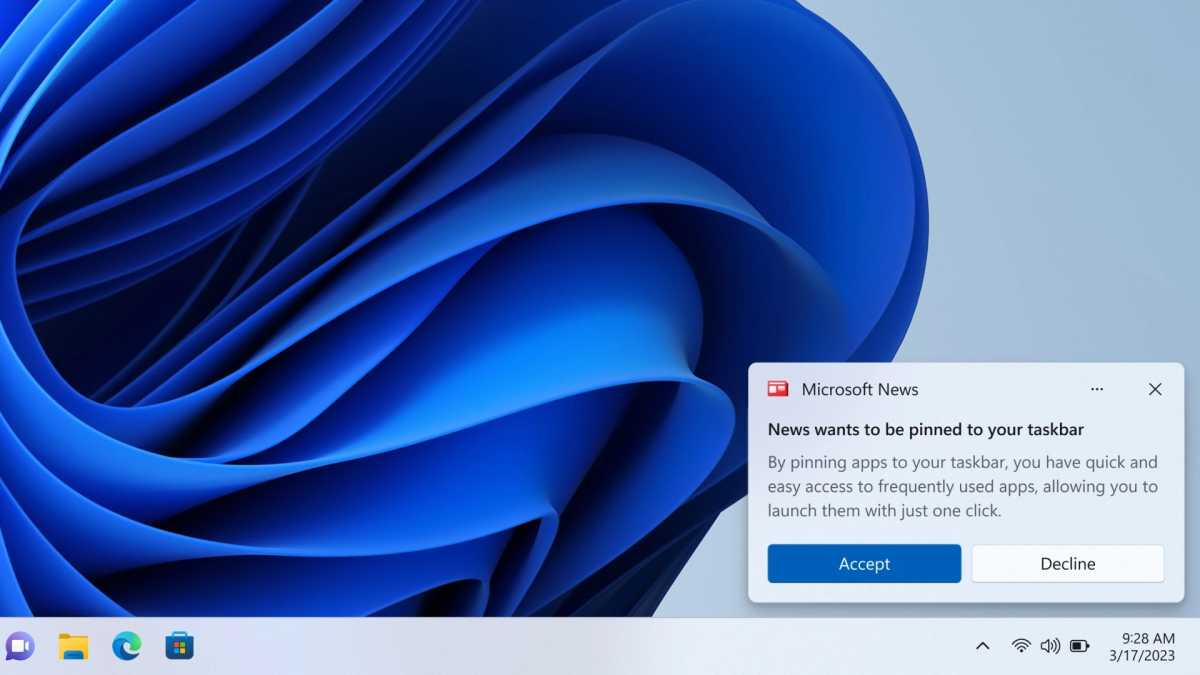
Image: Microsoft
If you don’t like insecure people who demand attention, you’re going to hate the changes Microsoft has planned for Windows 11.
During the coming months, Microsoft plans to add two changes to Windows. First, it will give developers new API access to the default apps settings. Second, another API change will pop up notifications asking you to add the app to the taskbar.
Here’s what it all means. In Windows, the Settings menu has a list of default apps (Apps > Default apps). As the name suggests, this controls which app will open a PDF, for example, or an HTML web page. Chances are you never bother adjusting these after you’ve selected your web browser and so on. But your choice also cuts out any of the competing third-party apps that reside on your machine, such as the multiple free web browsers that are available.
What the change would mean is that the new browser would have access to the Default apps page, implicitly asking you to change your preference to the new browser. (Microsoft calls this a “deep link” URI [Uniform Resource Identifier], simply meaning that a file type is associated with an app.)

Microsoft
It gets worse. Most apps don’t really ask you to pin them to the Windows taskbar, letting you decide if you want to add a quick shortcut to the apps down below. But that’s potentially changing, too. Now, you’ll see popups asking you to pin the app to the taskbar in addition to making the app the default.
In both the case of the deep link URI as well as the pinning popup, you’ll have the option of approving or denying the request. The issue, of course, is that the request is being made in the first place, and there’s no indication of how frequently an app can beg you for preferred treatment.

Microsoft
Microsoft detailed the potential changes as part of a “principled approach to app pinning,” which it published on Friday. If there’s any saving grace, it’s that the changes will be pushed to the Windows 11 Insider Dev Channel in the coming months. Thankfully, the Dev Channel is for experimental code that may or may not be pushed to Windows. (The Beta and Release Preview Channels are for features that will arrive in Windows in the future.) On the other hand, Microsoft isn’t pushing the new feature in the newly-minted Canary Channel, likely oriented toward Windows 12.
Microsoft also said that it remains committed to putting you in charge of your own preferences. “We have taken and will continue to take steps to mitigate unrequested modifications to a user’s choices and expect to do more later this year after application developers have had time to incorporate these new best practices,” Microsoft said.
On the other hand, Microsoft also said that it will be adding a version of Edge that incorporates both the new “deep link” URI setting as well as the public pinning APIs, just to prove it all works. Hurray.











